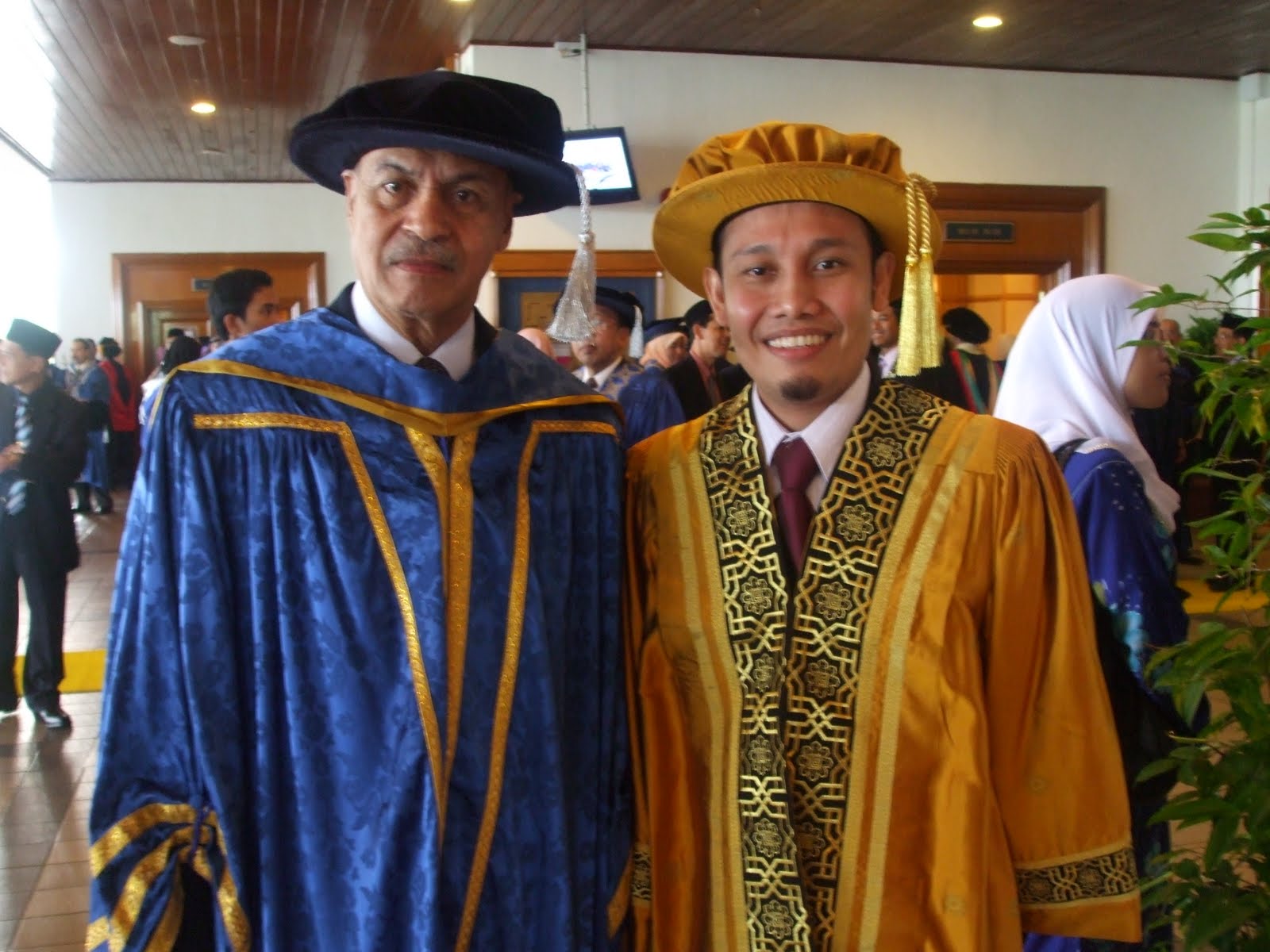Topic: How to prepare for the oral defense of your thesis/dissertation
Use the following steps when preparing for the oral defense of your thesis/dissertation.
1. Evaluation of oral examination is based on your presentation and your answers to questions from the examining committee.
2. Be well prepared for your presentation - academically, mentally and physically. Try to be well rested and focused before your oral defense.
3. In your preparation, don't try to memorize all the studies cited in your thesis, but you do need to know the details of a few key studies, which form the basis of your investigation.
4. You need to be familiar with larger issues, such as the basic assumptions, theoretical framework, paradigm, cross-cultural perspectives, religious integration, etc.
5. More importantly, you need to have a deep understanding of the nature of your research problem and the major issues involved.
6. You may bring with you important materials for easy reference in the course of your defense; these may include key articles, computer print-outs of results, etc.
7. Your presentation is evaluated in terms of content and clarity as well as style.
8. Don't speak too fast and don't read from your notes.
9. Treat your presentation as a public address because there may be non-psychologists present at your defense. Therefore, don't use too many jargons and don't pack it with details. You need to tell people in simple, concise language: (a) What you did, (b) Why you did it, (c) How you did it, (d) What you found, and (e) What do the results mean.
10. Prepare power point presentation, hand-outs or power-points. Typically, they should include (a) An overview or outline of your presentation, (b) Introduction (including research question, rationale and hypothesis, if any, and definition of key constructs). (b) Method (including design, methodology, sample, instruments or questionnaires, and procedure. (c) Results (including tables or figures summarizing your findings) and (d) Discussion (including reasons for new or unexpected findings, contributions and limitations, and practical implications.)
11. Make sure that you space yourself well. Don't spend too much time on one section. For example, you should not spend more than 5 minutes on introduction, since you are allowed only 20 minutes for your presentation.
12. Most of the questions are rather general and broad, dealing with substantial methodological, theoretical and application issues. However, some questions focus on specific points regarding sampling, statistical analysis, or some questionable conclusions.
13. Be prepared to clarify or elaborate on your assumptions, theoretical positions, methods, and conclusions. Often an examiner plays the devil's advocate to see how well you can think on your feet and defend yourself.
14. Occasionally, an examiner may ask a question which is unfair or cannot be adequately answered. After a few futile attempts, feel free to say that you don't know the answer. You may even be bold enough to say, "Since none of my answers are acceptable, I would really appreciate it, if you could give me some pointers or tell me what would be a correct answer."
15. Here are some common questions: (a) If you were to do it all over again, what changes would you make? (b) What specific aspects of your findings can be utilized by counselors or psychologists in their practice? (c) What is the most important contribution of your thesis? Can you say it in one or two sentences? (d) What are some of the competing hypotheses? Could you think of an alternative interpretation of your findings?
16. Don't rush to any answers. It is perfectly acceptable to think for a couple of seconds, or ask if you are on the right track. If you are not clear about the question you are entitled to ask for clarification.
17. Try to be concise and to the point, but at the same time demonstrate that you have a good grasp of the complex issues involved. In other words, do not give superficial answers, but at the same time, do not go all over the map.
18. Put up a good defense without being defensive. Be confident without being cocky. A good defense means that you can provide strong logical arguments as well as empirical support to defend your position or conclusion. However, don't be defensive, when people criticize your study. If they are able to point out some real flaws or weaknesses in your study, accept their criticisms with humility, grace and gratitude.
19. Before the oral defense, talk to your advisor about areas of concerns based on external examiner's comments. Then, discuss with your advisor how to best address these concerns. (You advisor can not tell you the specific questions the examiners will ask, but he can direct your attention to issues or areas that require some thinking or additional research.)
20. After the oral defense, meet with your advisor for debriefing and seek advice on how to revise your thesis.
Originally excerpted from:
http://www.meaning.ca/archives/all_articles.htm#
Paul T. P. Wong, Ph.D., C.Psych.
Research Director, Graduate Program in Counselling Psychology Trinity Western University
Langley, BC, Canada










No comments:
Post a Comment